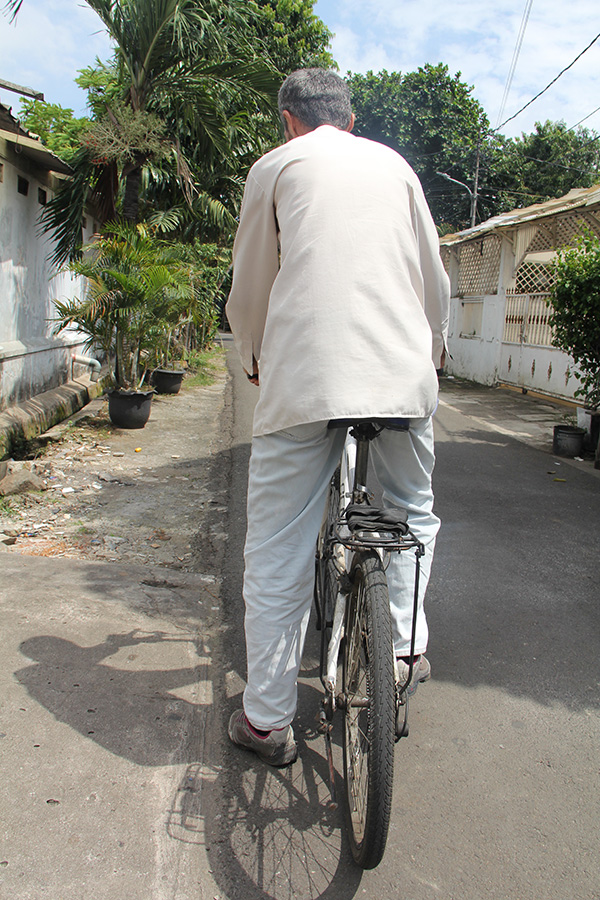Stories of Change

Muhammad on his bicycle in Jakarta. Photo: CWS
CWS helps to support hundreds of refugees and asylum seekers in Jakarta, including nearly 100 unaccompanied and separated children.
For refugees in Jakarta, English means independence
Muhammad* and his bicycle are a familiar sight around the CWS-UNHCR Refugee Center in Jakarta. Twice a week for the last two years the 56-year old has been attending English and computer classes at the Center – though most of his classmates are not older than 20. To save what little money he has, Muhammad rides his bike, about 45 minutes each way in crazy Jakarta traffic, to attend class.
Muhammad is from Ghazni Province in Afghanistan, where men associated with the Taliban insurgency are a constant menace that has left countless families devastated and separated from each other. In 2011 Muhammad was kidnapped by insurgents and held for several months before a guard helped him escape, after which he move to Helmand province for work with an American construction company. Sadly, but not surprisingly, death threats followed Muhammad in his new job and he decided that he had leave his homeland, just as two of his three sons had already done. One of his sons went to Iran and one to Turkey after their older brother, a truck driver, disappeared somewhere along the Herat and Kabul highway many years ago. Leaving his wife, daughters-in-law and four grandchildren behind to be supported mostly by a relative who lives in Pakistan, Muhammad arrived in Indonesia in 2012. He first settled outside Jakarta, but soon moved into the city to stay with Afghan friends who had been in Indonesia for some time and who helped him seek support from CWS and the UNHCR.
When he arrived in Indonesia, Muhammad spoke no English and had never used a computer. The language challenge made daily life, including visits to the health clinic, difficult. Muhammad found that he needed a friend to join and to translate, and he quickly felt uncomfortable having to rely on others. Some friends helped him freely, but others asked to be compensated with food, drinks and bus fare that Muhammad could not really afford. So Muhammad decided to learn English, which he knows will help him in the future if he is granted asylum in an English-speaking country, which is his hope. And, he knew that English could help him in Jakarta, too, since many clinic workers and others speak it at least a bit.
Proudly, Muhammad is making progress and he can go to the clinic or shopping on his own. Laughingly, he says, “Now I can ask for directions when I get lost with my bike!”
As for learning how to use a computer, which requires another “language” he did not know before, Muhammad has now become “fluent” enough to join Facebook and, amazingly, he can be in touch with friends and family back in Afghanistan – all the while building new knowledge and skills that he is sure will help him no matter what comes next.
*name changed to preserve anonymity
